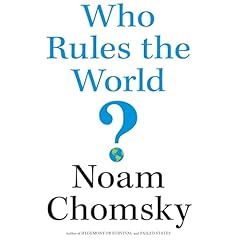
History in 30: The History of Nazi Germany Before World War II
No se pudo agregar al carrito
Add to Cart failed.
Error al Agregar a Lista de Deseos.
Error al eliminar de la lista de deseos.
Error al añadir a tu biblioteca
Error al seguir el podcast
Error al dejar de seguir el podcast
 Exclusivo para miembros Prime: ¿Nuevo en Audible? Obtén 2 audiolibros gratis con tu prueba.
Exclusivo para miembros Prime: ¿Nuevo en Audible? Obtén 2 audiolibros gratis con tu prueba.Compra ahora por $9.76
-
Narrado por:
-
Dan Gallagher
-
De:
-
Percy Bennington
The Weimar Republic has become a byword for a failed, tragic, political experiment. The official period of its existence, 1919-1933, marked the inter-war years in Germany and their related uncertainty, chaos, and the state’s ultimate collapse. Historians have found the roots of Nazism embedded in the Weimar years and that, in the final analysis, Weimar politicians voluntarily handed over power to the man who wrought destruction on an epic scale, Adolf Hitler.
Yet, the Weimar era encapsulated a number of trends and fissures within German society as well as the international community. The Weimar Republic was a prisoner of events and in the long run had little power to shape them. Historians are fond of interpreting the past as a tension between human agency, that is to say decision making, and structural developments that evade individual choices. Both these interpretations are crucial when examining the tumultuous years of Germany’s Weimar Republic.
German governments had teetered on the edge of collapse throughout the Weimar years, as politicians of all stripes had struggled to stabilize the economy and the wider societal problems. In the 14 years between 1919 and 1933, a total of 20 separate coalition governments had been formed. The most stable period, after the hyperinflation of 1923 and before the Wall Street Crash of 1929, was only calm in a relative sense. It is therefore perhaps unsurprising that the Weimar state was so easily dismantled by Hitler’s National Socialists. What is more shocking, however, is the speed in which the Nazis turned a fragile democracy into one of history’s most draconian dictatorships. The Nazis demonstrated both brute force and political guile, as well as highly effective propaganda, in achieving their aims.
There are many contradictions surrounding the transition from Weimar to Nazi Germany. The country had been home to some of the key figures of the Enlightenment Period, in arts, philosophy, music and literature. Yet this beacon of civilization descended into an abyss of barbarism and intolerance. A region that for so long resisted incorporation into one state became intensely nationalistic. A country that provided refuge to Jewish people for hundreds of years turned on them to prosecute anti-Semitism’s lowest point: the Holocaust. A state (Weimar) that had been designed with liberal and progressive ideals dissolved into illiberalism and reactionary authoritarianism.
History in 30: The History of Nazi Germany Before World War II provides a quick but comprehensive look at the notorious regime’s actions before history’s deadliest war.
©2018 Percy Bennington (P)2018 Percy BenningtonLos oyentes también disfrutaron:



















![Communism [Modern Library Chronicles] Audiolibro Por Richard Pipes arte de portada](https://m.media-amazon.com/images/I/31eeTPckVLL._SL240_.jpg)


